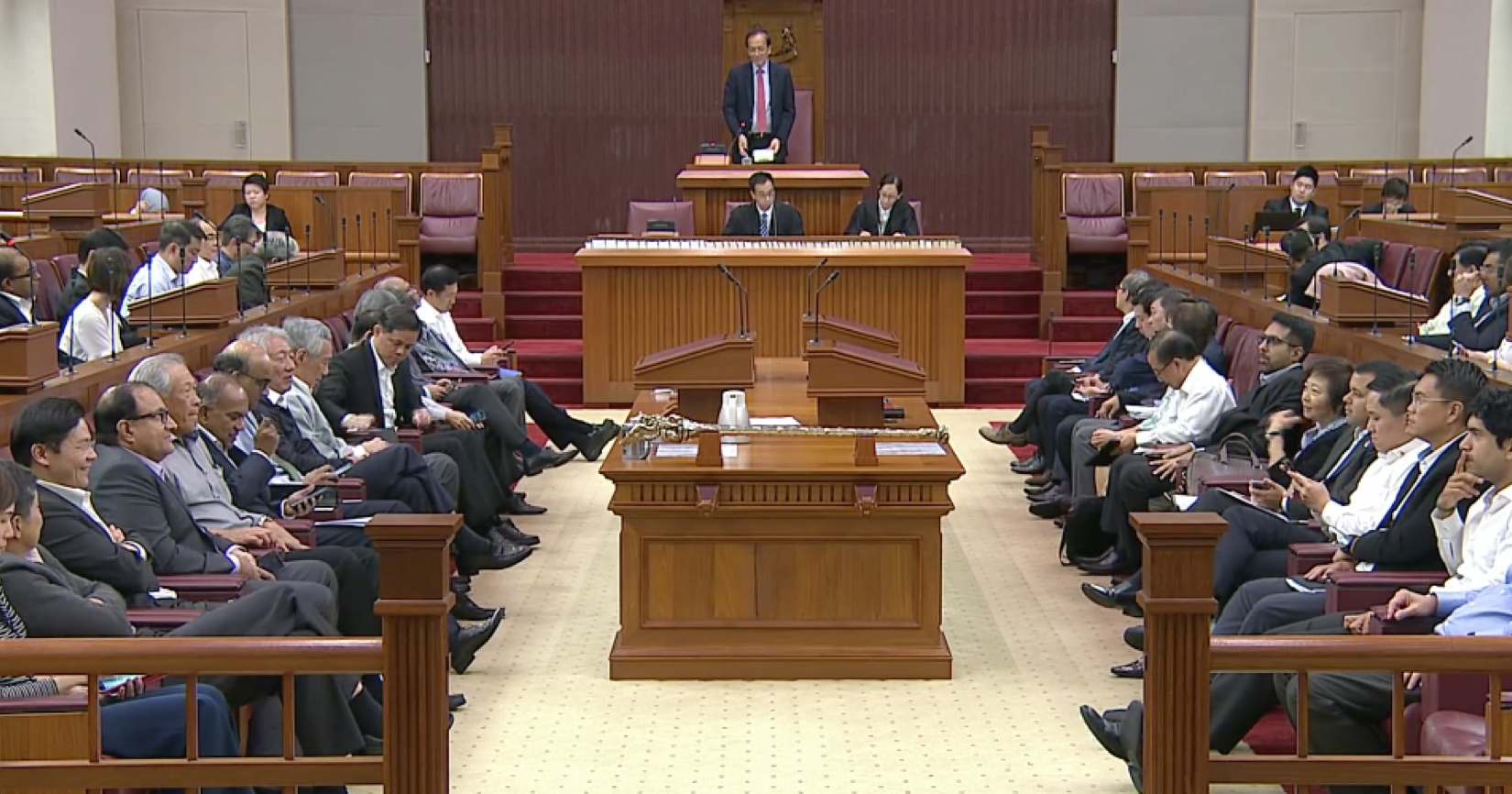It was perhaps no surprise that the Protection from Online Falsehoods and Manipulation (POFMA) Bill was passed by Parliament.
On May 8, 72 Member of Parliaments (MPs) voted for the Bill, with three abstentions and all nine members of the Workers' Party (WP) voting no.
But since it's going to be here to stay, we should put our heads together to make sure it works best for all -- the public, the government, and the media industry.
Here are some suggestions that might help build trust between the public and the authorities while also ensuring that the threat of deliberate online falsehoods are smacked down.
1. Transparency of Correction orders made
POFMA gives the authorities the power to issue a Correction Direction against someone who published a falsehood.
That person is required to publish the fact alongside the falsehood, so that the facts can travel together with the falsehood.
Currently, most media platforms already accept that the government should have a right of reply to a story, especially if the government disagree with the facts of the story.
However, it is not readily apparent to the public when such corrections are made, or why they are made.
In the interest of transparency, the new POFMA office, which will be set up within the Info-Communications Media Development Authority, could publish a list of Correction Directions it has issued on a regular basis.
This list, which would be similar to the media's round up of "This Week in Parliament", could be updated every quarter and inform the public of the following:
- Number of Directions given.
- The circumstances requiring a correction.
- The correct information.
This will help to increase transparency while also educating the public.
2. A fact-checking coalition
It should be mentioned that the Select Committee on Deliberate Online Falsehoods provided not just one or two but 22 recommendations to fight the problem.
Number 11 on the list reads:
"Different media organisations and partners from other industries should consider establishing a fact-checking coalition in Singapore to debunk falsehoods swiftly and credibly, or providing relevant support to such credible fact-checking initiatives.
There are differing views on the role that the government can play in supporting fact-checking initiatives."
By getting non-government bodies such as the media practioners and academics to contribute to the effort, the government is enlisting a "whole of society" approach in combating online falsehoods.
The public also gains trust that POFMA will not be exploited for partisan political gain.
With the executive making the first call on falsehood, and the courts as final arbitrator, a fact-checking coalition can act as the auditor.
This coalition would be able to review the list of Correction directions issued by the POFMA office, perform an audit, and release an advisory on whether or not they agreed with them.
3. Public education on fake news
Legislation itself does not address the root of deliberate fake news.
As identified by the Select Committee's report, public education is a key pillar in nurturing an informed public.
Minister for Communication and Information S. Iswaran also said that the "importance of strengthening Singapore's media and digital literacy cannot be overemphasised".
The National Library's S.U.R.E campaign and the Media Literacy Council's Better Internet campaign are commendable initiatives. But more needs to be done so that POFMA will be rendered obsolete one day.
Think about the family WhatsApp chat groups where your uncles and aunties forward frantic messages warning you that "You will be fined S$150 for watching your phone while crossing the road!!!!"
A simple Google search will show that this piece of news is fake, but why don't more Singaporeans do that?
Perhaps a more targeted campaign aimed at older Singaporeans, or less literate segments of society, can help address this.
Separately, the Select Committee recommended a school curriculum which imparts critical thinking and exposes the motivations, tools, and techniques of disinformation agents.
More importantly, this curriculum should equip students for "active and constructive public discourse" because people should have access to all points of view to make an informed decision and engage others online.
4. Promote accuracy in reporting
Few news sites in Singapore actively go out of their way to produce stories which are outright fake.
In most cases, inaccurate reporting by news sites -- both mainstream and alternative -- stem from a lack of concrete information.
Sometimes, the struggle to juggle speed and accuracy results in mistakes.
As Terry Xu, the chief editor of The Online Citizen once said during his public hearing with the Select Committee:
"[There] are times where you can't get a response, despite how long you wait, but then the stories still have to be pushed through."
However, most sites are willing to issue corrections or updates when said information is available.
The Select Committee, in its recommendations, called for both mainstream media and alternative news platforms to ensure fair, accurate, and honest reporting.
On the flip side, the onus is also on newsmakers, like ministries and agencies, to provide timely updates so that news sites -- both mainstream and alternative -- can do their best to adhere to these standards.
Related stories:
Top image via screen shot from CNA.
If you like what you read, follow us on Facebook, Instagram, Twitter and Telegram to get the latest updates.
